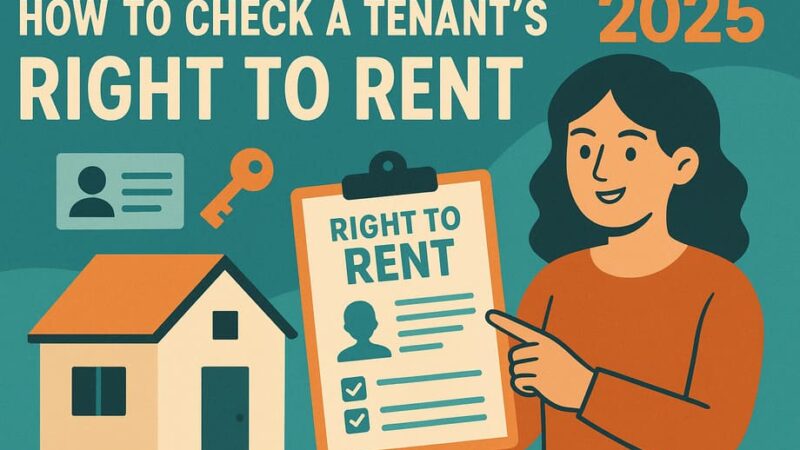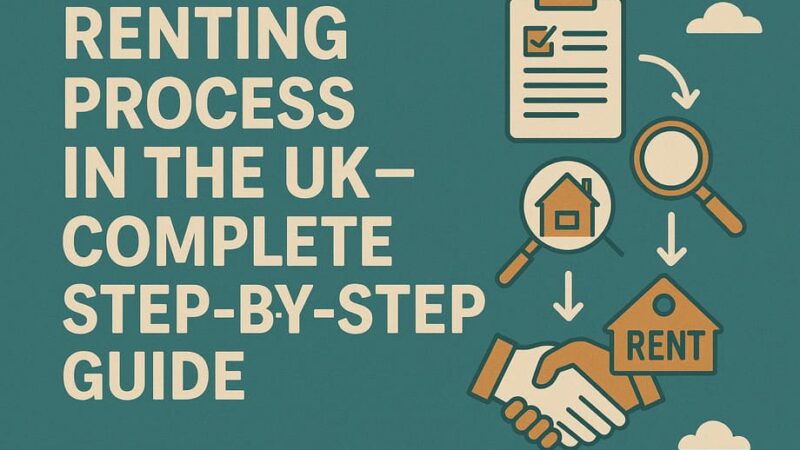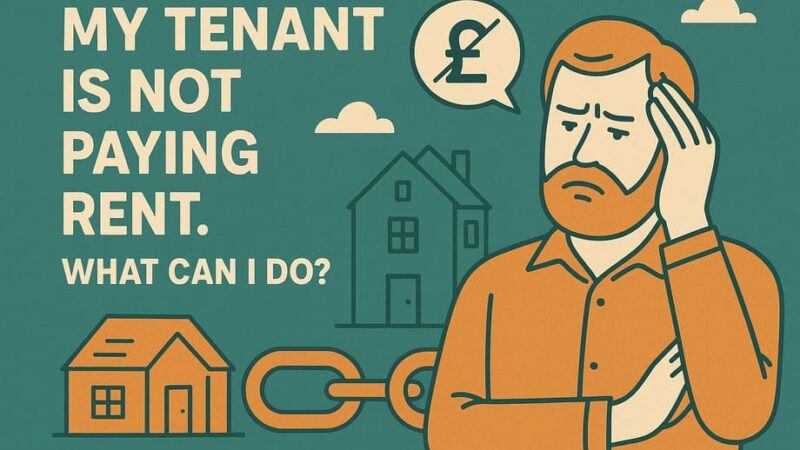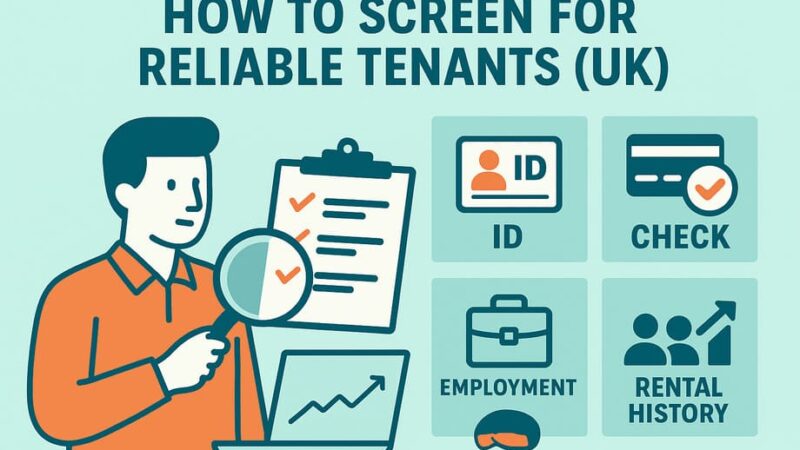Landlord Fridge Repair Responsibilities in the UK: Who Pays When Things Break?
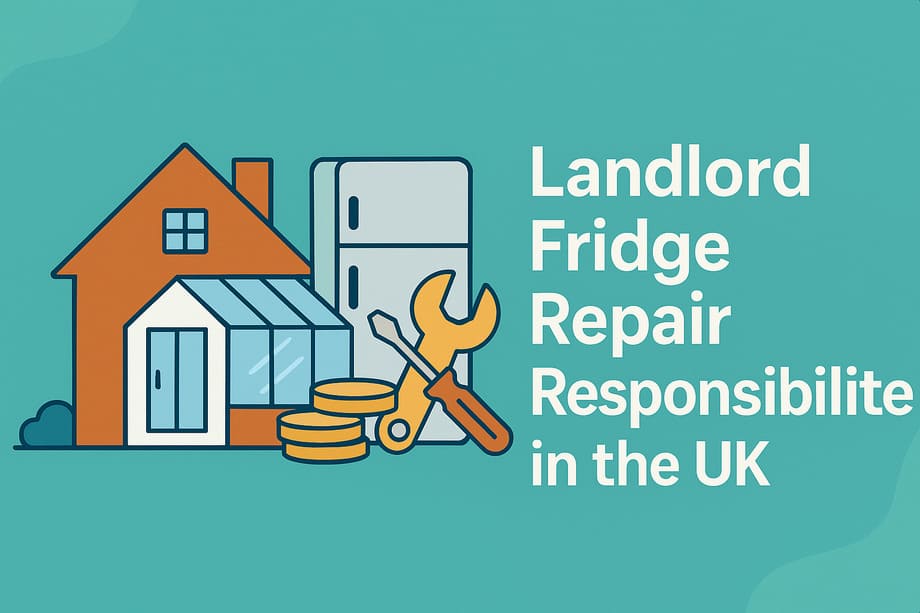
When the fridge stops working in a rental property, panic sets in quickly. Food spoiling, no cold drinks, and the urgent question: who’s responsible for fixing it? For both landlords and tenants, understanding appliance repair responsibilities can prevent disputes, save money, and maintain good relationships.
The reality is that appliance breakdowns are the bane of every landlord – and every tenant’s – life. And there are few instances more irritating than a broken down freezer or fridge, that causes all of the tenant’s food to spoil.
But the answer to who pays isn’t always straightforward. While some landlords are fully responsible for appliance repairs, others can legally require tenants to handle everything. The difference often comes down to what’s in your tenancy agreement, who owns the appliance, and how it broke.
Whether you’re a landlord wondering about your legal obligations or a tenant facing a broken fridge, this guide explains exactly who’s responsible for what when appliances fail in UK rental properties.
What Are Landlord Fridge Repair Responsibilities?
Landlord fridge repair responsibilities in the UK are not as clear-cut as other property maintenance duties. Unlike structural repairs or heating systems, appliances exist in a legal grey area where responsibility depends heavily on specific circumstances.
The key factors that determine responsibility include:
Ownership and Provision: Whether the landlord provided the fridge or the tenant brought their own Tenancy Agreement Terms: What specific clauses exist about appliance maintenance Cause of Breakdown: Whether it’s normal wear and tear or tenant damage Legal Framework: How current housing law applies to appliances
Critical legal context: Under the Landlord and Tenant Act 1985, landlords are generally responsible for structural repairs and essential systems, but the legislation does not explicitly require landlords to repair or replace white goods if they break down.
However: Your tenancy agreement might give you extra repair rights. For example, it could say that the landlord is responsible for repairing faulty appliances such as a fridge or washing machine.
The responsibility landscape has evolved significantly, with many landlords now including appliance maintenance clauses to attract tenants and avoid disputes, even though they’re not legally required to do so.
Landlord Legal Obligations vs Tenant Responsibilities
What Are Landlord Legal Obligations?
Landlord legal obligations for appliances are more limited than many people assume, but they do exist in specific circumstances.
When landlords must handle fridge repairs:
- The appliance was provided by the landlord and listed in the inventory
- The tenancy agreement specifically states landlord responsibility
- The breakdown is due to normal wear and tear, not tenant damage
- The appliance is essential to making the property habitable
Key legal framework: There are three main appliances which are expected in any tenancy: a fridge-freezer, an oven with a hob and a washing machine. While these three standard appliances are to be kept in good condition to uphold living standards, the law does not require you to maintain any appliances.
Safety obligations: Landlords must ensure that any electrical appliances they provide are safe to use at the start of a tenancy. The Electrical Safety Standards in the Private Rented Sector Regulations 2020 require landlords to have qualified inspections every five years.
What Are Tenant Responsibilities?
Tenant responsibilities for appliances center around proper use and care of items provided by the landlord.
When tenants handle fridge repairs:
- They own the appliance and brought it into the rental
- They or their guests caused the damage through misuse
- The tenancy agreement specifically assigns appliance maintenance to tenants
- They failed to report problems promptly when they first occurred
Key tenant duties: Tenants are generally responsible for the everyday maintenance and proper use of white goods and appliances provided in the rental property. This includes following the manufacturer’s instructions and not misusing the appliances, reporting any faults or breakdowns due to normal wear and tear to the landlord promptly.
Damage responsibility: If a tenant causes damage to an appliance which requires repair, it will be their responsibility to have it repaired – not yours.
Do I Need to Replace My Tenant’s Fridge?
You Must Replace If:
- You provided the fridge and it’s listed in your property inventory
- Your tenancy agreement specifies you’ll maintain appliances
- The breakdown is due to normal wear and tear or mechanical failure
- You’ve advertised the property as furnished or semi-furnished
- The fridge is integrated and considered part of the kitchen fixtures
You Don’t Need to Replace If:
- The tenant brought their own fridge to the property
- The tenant caused the damage through misuse or negligence
- Your tenancy agreement specifically excludes appliance maintenance
- The property was let unfurnished with no appliances provided
- You can prove the tenant was previously warned about appliance issues
You Should Check Your Agreement If:
- The fridge was already old when the tenant moved in
- You’re unsure whether it was included in the original inventory
- The tenant claims they reported problems previously
- You want to upgrade rather than repair an old appliance
What Should Be Included in My Appliance Repair Policy?
Clear Ownership Documentation
Inventory Requirements: Before any tenancy begins, a comprehensive inventory will be done, detailing the condition of all the fixtures, fittings and appliances included with the property. If the white goods in question have been supplied by the landlord and are listed in the inventory, it will typically be their responsibility to arrange the necessary repairs.
Property Advertising: Your initial property listing and how you’ve marketed the accommodation affects expectations. Properties advertised as “furnished” typically include fridge-freezers as standard equipment.
Tenancy Agreement Clauses
Specific Appliance Terms: Your tenancy agreement should dictate what you are and are not taking responsibility for repairing, so make sure you go through this with any prospective tenants before leasing. This is where you can clear up which appliances you will organise repairs for and which you won’t.
Recommended approach: Cooker, washer and fridge-freezer are usually the chosen appliances as it will keep you and your tenant on good terms.
Damage and Misuse Clauses: However, this may not apply if the damage is deemed to have occurred as a result of misuse; for example, if an appliance has been deliberately broken or the tenant has gone against the manufacturer’s instructions.
Repair Timeline Standards
Response Time Expectations: Your landlord should tell you when you can expect the repairs to be done based on the severity and nature of the problem.
Reasonable timeframes typically include:
- Emergency repairs affecting safety: 24-48 hours
- Essential appliances like fridges: 3-7 days
- Non-essential appliance repairs: 1-2 weeks
Reporting Procedures
Tenant Notification Requirements: As a tenant, it’s your responsibility to inform the landlord of any repairs that are needed. It’s a good idea to inform the landlord as soon as possible and keep a record of what you’ve told them and when.
Documentation standards: First, you should check the terms of the tenancy agreement to determine who is responsible for repairs. If the appliance was supplied by the landlord, the tenant will need to document the issue, taking photos if necessary, before notifying the landlord.
How Much Should I Budget for Appliance Repairs?
Average Fridge Repair Costs
Typical repair expenses:
- Call-out fees: £50-80
- Minor repairs (thermostat, door seals): £80-150
- Major repairs (compressor, cooling system): £200-400
- Full replacement: £300-800 depending on quality
Factors affecting costs:
- Age of the appliance (older units often cost more to repair)
- Availability of spare parts
- Urgency of the repair (emergency call-outs cost more)
- Whether you use warranty or independent repair services
When to Repair vs Replace
Repair makes sense when:
- The appliance is less than 5 years old
- Repair costs are under 50% of replacement cost
- Parts are readily available
- The unit has been reliable previously
Replacement makes sense when: A freezer breakdown may also be the perfect opportunity with which to think about upgrading it. If it’s been showing its age for a good while, then a temporary fix or even a repair on an old unit may well not be as cost effective as replacing the whole thing altogether in the long term.
Long-term considerations: New units aren’t excessively pricey and one may significantly help reduce your EPC rating, making your property more energy-efficient and attractive to tenants.
Budgeting for Multiple Properties
Annual appliance maintenance: Most landlords with multiple properties budget 1-2% of rental income for appliance repairs and replacements across their portfolio.
Preventive maintenance: Regular servicing and cleaning can extend appliance life and reduce emergency repair costs.
Common Disputes and How to Avoid Them
Food Spoilage Compensation
The legal position: You as a landlord are one hundred percent responsible for fixing any appliances which break down as a result of mechanical fault. When it comes to food, no, that’s not your responsibility in the slightest.
Landlord liability exceptions: However, if the tenants told you about a faulty refrigerator ages ago and you’ve not inspected or fixed the problem, you may actually be liable!
Building goodwill: If you really like your tenants and they’ve never given you any issues, then it might be worth sending them a cheque for a token amount to help cover their losses. Something like £20 can go an awfully long way towards proving your good intentions.
Neglected Maintenance Claims
Tenant negligence issues: In most cases, the landlord is not responsible for the tenant’s loss unless the landlord is negligent. If a landlord failed to respond to repeated requests to fix the refrigerator because it was not operating properly, and then it completely fails, this could create liability.
Prevention strategies:
- Respond promptly to all appliance repair requests
- Keep written records of all maintenance communications
- Arrange repairs within reasonable timeframes
- Don’t ignore early warning signs of appliance problems
Misuse vs Normal Wear Disputes
Determining responsibility: The challenge often lies in determining whether appliance failure is due to normal wear and tear or tenant misuse.
Evidence gathering:
- Take photos of appliance condition at move-in and move-out
- Keep maintenance records and service histories
- Document any tenant-reported issues and your responses
- Get professional assessment of failure causes when disputed
Communication Breakdown Prevention
Clear documentation: Both parties should keep clear records and communicate effectively if appliance problems occur to avoid misunderstandings about responsibilities and timelines.
Professional repair services: It’s important to only use a trusted appliance repair specialist to carry out this work; otherwise, you run the risk of further damage or voided warranties.
What Happens When Appliances Break Down?
Immediate Response Requirements
Tenant notification process: Report any repairs to your landlord as soon as possible. Contact your landlord if you think your property needs repairs. Do this straight away for faults that could damage health or safety.
Landlord assessment duties: When tenants report appliance problems, landlords should assess the urgency and arrange appropriate repairs within reasonable timeframes.
Temporary Solutions
Short-term measures: While waiting for repairs, landlords might consider:
- Providing temporary alternative storage (cool bags, neighbor arrangements)
- Expedited repair services for essential appliances
- Temporary appliance rental in extreme cases
Tenant mitigation: Tenants should take reasonable steps to minimize food spoilage, such as using cool bags or consuming perishables quickly.
Emergency vs Non-Emergency
Emergency situations:
- Complete fridge failure in hot weather
- Food safety concerns
- Electrical hazards from faulty appliances
Standard repairs:
- Reduced cooling efficiency
- Minor door seal issues
- Internal light failures
Professional Repair Coordination
Service arrangements: It will then be up to the landlord to arrange the necessary expert repairs – attempting a DIY repair may void the warranty.
Quality considerations: Whether you’re a landlord or a tenant, professional appliance repair services are available with same day, weekend and evening appointments, so an appliance breakdown doesn’t have to be a disaster.
Insurance and Protection Options
Landlord Insurance Coverage
Standard policies: Most landlord insurance policies don’t automatically cover appliance repairs, but some offer optional appliance cover for additional premiums.
Appliance protection plans: For a small monthly fee, many companies offer appliance protection plans to help landlords avoid costly repair bills across multiple properties.
Tenant Insurance Considerations
Contents insurance: The best practice is for tenants to have renter’s insurance to cover their personal belongings – typically including groceries affected by appliance failures.
Limitations: Tenants should understand that their contents insurance may not cover food spoilage due to appliance breakdowns unless specifically included.
Warranty Protection
New appliance warranties: When replacing appliances, consider extended warranties that cover both parts and labor for several years.
Manufacturer vs Third-party: Manufacturer warranties often provide better coverage but third-party extended warranties can offer longer protection periods.
Regional and Legal Variations
England and Wales vs Scotland
Legal frameworks: While the basic principles apply across the UK, Scotland has additional tenant protections that may affect appliance repair responsibilities.
Local authority involvement: Contact the environmental health department at your local council for help if landlords fail to address essential appliance repairs that affect health and safety.
Different Property Types
HMO Properties: Houses in Multiple Occupation may have enhanced appliance requirements, especially for shared kitchen facilities.
Furnished vs Unfurnished: The distinction significantly affects appliance responsibilities, with furnished properties carrying greater landlord obligations.
Professional Advice and Support
When to Get Expert Help
Complex disputes: If responsibility for appliance repairs becomes disputed, consider:
- Mediation services
- Citizens Advice guidance
- Legal advice for significant claims
Property management: Professional property managers can handle appliance maintenance as part of their service, reducing landlord stress and ensuring proper procedures.
Preventive Professional Services
Regular maintenance: Consider annual appliance servicing to prevent breakdowns and extend equipment life.
Emergency repair contracts: Some companies offer priority repair services for landlords with multiple properties.
Frequently Asked Questions
Do landlords have to replace fridges in the UK?
Landlords must replace fridges they provided if they break down through normal wear and tear. However, there’s no legal requirement to provide fridges unless specified in the tenancy agreement.
Who pays when a tenant’s fridge breaks?
If the landlord provided the fridge and it’s in the inventory, the landlord typically pays for repairs. If the tenant brought their own fridge or caused damage through misuse, the tenant pays.
Can landlords charge tenants for fridge repairs?
Landlords can charge tenants for fridge repairs only if the tenant caused the damage through negligence or misuse, or if the tenancy agreement specifically assigns appliance maintenance to tenants.
How long do landlords have to fix a broken fridge?
Landlords should fix essential appliances like fridges within 3-7 days. There’s no specific legal timeframe, but it must be within a “reasonable period” depending on circumstances.
Are landlords responsible for food spoiled in broken fridges?
Generally no, landlords aren’t responsible for spoiled food unless they were negligent (for example, ignoring previous repair requests that led to complete breakdown).
What if my landlord won’t fix the provided fridge?
If your landlord provided the fridge but won’t repair it, contact your local council’s environmental health department, especially if it affects your ability to store food safely.
Conclusion
Understanding fridge repair responsibilities doesn’t have to be complicated, but it does require clear communication and proper documentation from both landlords and tenants.
Remember:
For Landlords:
- You’re responsible for appliances you provide and list in inventories
- Quick response to repair requests prevents larger problems and disputes
- Consider appliance protection plans for multiple properties
- Document everything from initial condition to repair requests
For Tenants:
- Check your tenancy agreement to understand what appliances are provided
- Report problems immediately to avoid claims of negligence
- Take photos and keep records of appliance issues
- Don’t attempt repairs yourself on landlord-provided appliances
For Everyone:
- Clear tenancy agreements prevent most disputes
- Professional repair services protect warranties and ensure quality
- Good communication maintains positive rental relationships
- Understanding legal obligations protects both parties
The key principle: You as a landlord are one hundred percent responsible for fixing any appliances which break down as a result of mechanical fault – but only if you provided them in the first place.
Whether dealing with a broken fridge or planning appliance policies, success comes from understanding your specific obligations, maintaining clear documentation, and responding promptly when problems arise. When in doubt, professional advice and quality repair services protect both your investment and your tenant relationships.
This guide covers general principles, but appliance responsibilities can vary based on specific tenancy agreements and circumstances. Always refer to your tenancy agreement and seek professional advice for complex situations.
Last Updated on August 27, 2025 by James Cartwright


